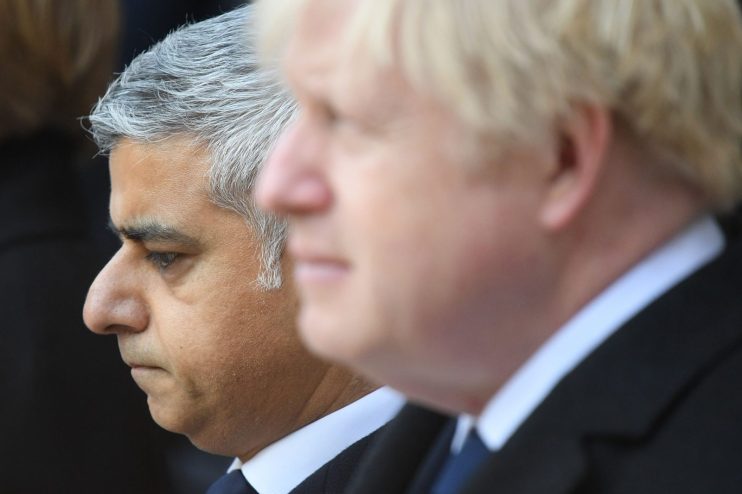Sadiq Khan vs Boris Johnson: it’s time to reset the relationship between the Mayor and No10

Being Mayor of London is a powerful political role. Elected to office with the second biggest direct mandate in Europe after the President of France, your name is on the ballot of every single voter in the city, and you are a one-person executive. As a voice for London, with huge convening power, mayors can really shape the future direction of the city.
As current and former mayors, Sadiq Khan and Boris Johnson should both get this. For the current mayor, having your predecessor as Prime Minister ought to bring advantages.
Alas, with politics in this country very adversarial, it hasn’t quite turned out to be so advantageous. Relations between City Hall and Number 10 are lukewarm at best. Each side feels aggrieved at the behaviour of the other, and the pandemic has worsened matters.
There has been only fleeting collaboration and shared agendas between the two, often driven by personal relations. City Hall’s joint work with the vaccines minister has been one of the better areas – both Khan and Nadhim Zahawi know each other from their time as councillors in Wandsworth. In most other areas, in particular the funding of Transport for London (TfL) – relations can only be described as dire.
Yet the capital faces some huge challenges which are too important to be derailed by party politics or personal rivalries. Take central London’s sluggish recovery from the pandemic. The double-whammy of workers not yet returning to their offices and the collapse of foreign tourism has whacked the retail and hospitality sector hard. Elements that make the West End and the City so vibrant and special are struggling, threatening the competitiveness of the city as a place to live and work.
London’s huge contribution to the UK economy, and the Treasury’s reliance on taxes generated by the capital means it matters for the whole country. Whether we like it or not, London has been a cash cow for the nation for decades. Post pandemic, London’s economic powerhouse is even more important – particularly to help fund the levelling up agenda – but it cannot be assumed it will just automatically continue firing on all cylinders.
The government and City Hall have a shared interest in kickstarting London’s economy. It’s time for them to put any personal or political rivalries to one side, and work hand in hand to protect jobs and investment, for the sake of both London and the country.
This requires statesmanlike behaviour on both sides. The Mayor must tame his combative instincts; already since May’s election he’s made attempts to reach out to the government. The Prime Minister must set aside any personal gripes he has with his successor and be honest with the country that London’s success matters to everyone, including the red wall seats.
This relationship particularly matters, given a levelling up White Paper, the Comprehensive Spending Review and a funding settlement for TfL are due in the autumn. If the wrong decisions are taken, it could herald investment being switched away from the city which – either by accident or intent – could end up levelling down London, making us all poorer.
Particularly pressing is the need to find £1-2billion a year to maintain TfL investment and services. Both sides must quickly agree that without this extra money, London will grind to a halt. There needs to be a grown-up conversation about what options are available to fill the funding gap, the proportion that should come from the city’s taxpayers and that from national coffers – but all the while making the case to the country that letting TfL collapse is bad for us all.
With only a brief window to work together more collaboratively before next May’s local elections see a return to full-throttle campaigning, the next four months are pivotal. Decisions taken will decide the direction of the city for a lifetime and a Boris and Sadiq love in might be just what the city needs.
